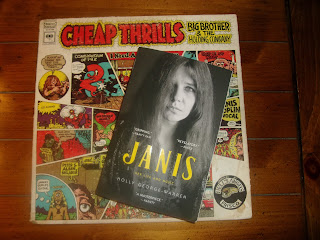As the year winds down and the covid-inspired lockdowns, if anything, intensify, there at least is time to catch up on reading. This past week’s selections included some factive fiction and fictive fact.
Harlan Coben is one of my go-to writers of contemporary mystery/suspense novels, second in my preference only to South African author Deon Meyer. In Coben’s 2019 Run Away, Simon Greene and his physician wife Ingrid try to find their missing adult (college-age) junkie daughter Paige. All too many of us (whatever our own histories of substance abuse might or might not be) have faced the problem of how to deal with an addicted family member or loved one who doesn’t want help if it means giving up drugs or alcohol. Not all of us are as persistent as the dedicated family man Simon. When Paige’s known dealer/enabler Aaron is murdered, Simon becomes a suspect. It is difficult to comment much on a mystery novel without spoiling the mystery. Among the questions raised, however, are how Paige fits in with a string of superficially unconnected murders, another missing person case, a professional hit couple, a rural cult, and deep family secrets. As usual with Harlan, the book is hard to put down once started. Suspense is high and the characters are, despite (or because of) their flaws, relatable. Also as usual with Harlan, he with no hesitation distinguishes between ethics and the law.
In August 1968, I was 15 and far, far from cool, but least I had a considerably hipper older sister who introduced into the house trending music that I might not have found on my own until it was passé. Her freshman year at Boston University would begin in less than a month, however, and she would be taking her favorite record albums with her. So I went shopping with a friend at a local record store in Morristown to beef up what would remain on the stereo shelf at home, relying in part on my sister’s advice and in part on that of the store clerk. Once back home, I slipped one of the new vinyl albums out of its jacket, which was covered with the artwork of Robert Crumb. The album was Cheap Thrills by Big Brother and the Holding Company. I still have it 52 (!) years later. The lead singer was Janis Joplin. I sat through the album from start to finish: the first of numerous occasions and a very 1960s thing to do. I bought her previous album on my next trip to the record shop and then picked up the next two (including the posthumous Pearl in ’71) within a few weeks of their release.
Popular music in the 21st century typically is polished, highly produced, visual, and choreographed. This so unlike the 1960s when a frowzy Janis simply walked on stage and sang her heart out. There is something about the romantic excess in her songs that appeals especially to adolescents – and for once I don’t mean that as an insult. It appeals to them because they are not cynical yet (much as they might think otherwise) and all of that emotion looms fresh and huge; if we have a little teenager left in us – again not meant as an insult – we still can recapture a bit of that from singers like Janis.
A dark side to Janis – not unique to the 1960s – was substance abuse: notably Southern Comfort onstage and heroin backstage. Southern Comfort is also something one tends to grow out of after adolescence btw: too sweet and syrupy straight-up, but OK as a mixer with coke or something. Like all liqueurs, it also gives mean hangovers – or so, ahem, I’m told. Hangovers by themselves would have been survivable however. Janis died in October 1970 from an overdose of unexpectedly pure (only 50% adulterated) heroin.
George-Warren’s book covers the ground
one expects a bio to cover.. All biographers going back to Plutarch insert
their own perspectives into their narratives, and George-Warren does, too, but
not overly distractingly. (Autobiographers on the other hand, while their
perspectives can’t help but be their subject’s own, are more apt to outright
lie, especially by omission.) The book is well researched and details the wrinkles
of Janis’ lifeline. Yet, despite the much briefer account contained in it, I prefer
the memoir Laid Bare by actor/author
John Gilmore who knew the woman personally. Though he writes of Janis in only
one chapter, and intensely from his own perspective, we put the book down
feeling we’ve met the person – and have mixed feelings about having done so. A
third option is simply to let Janis speak for herself in her music. That works,
too.
Janis
Joplin – Get It While You Can (1970)


I've noticed some Coben used books at the library, but never read one. I might pick one up next time I'm down that way. I enjoyed Janus back in the day. I believe I picked up Cheap Thrills and the Grateful Dead's Anthem of the Sun close together. Both were pretty groundbreaking to my teenage ears. Sometimes I really miss those days.
ReplyDeleteMe too. Of course everyone misses youth, but some decades really are better to be young than others.
ReplyDelete